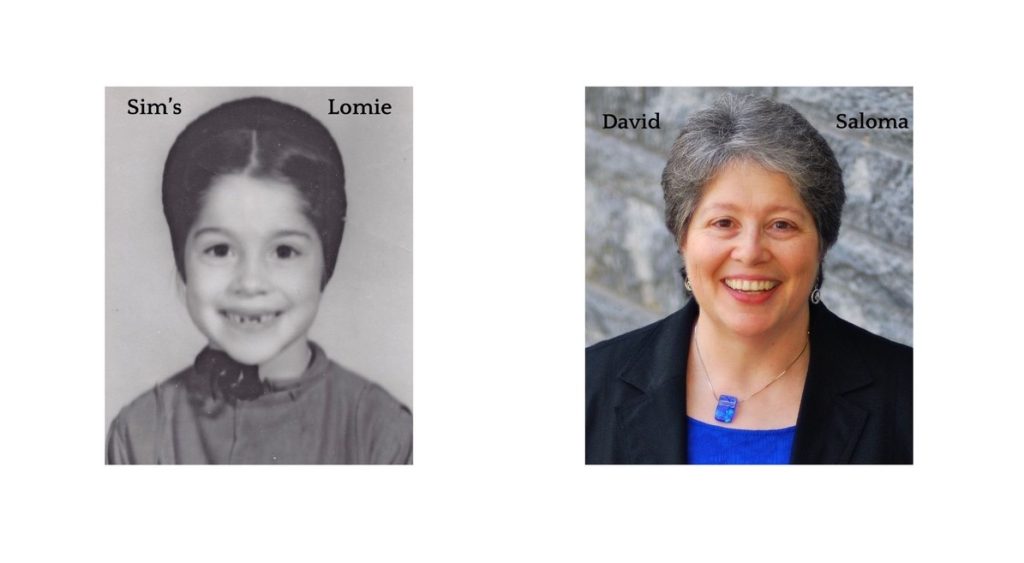First an announcement. I have finally been able to upload the print book to Amazon. It’s been a weeks-long process to get everything right. I had one problem after another. But it’s finally done. Now my book is available on all the channels I know that are available to me. Of course I would prefer that you buy it from me, and going by the print-on-demand proof I’ve gotten back from Ingram (and I understand more so with print-on-demand at Amazon), there is something in it for you. The books I had printed locally are of much better quality. The photos are much crisper in the ones I had printed, the paper is of better quality, and the print is sharper. There is another advantage. I will send the book to you within two days after I receive it. For some odd reason I am needing to wait until July 22 to receive my proof copy from Amazon. You can hop over to my Liberating Lomie page to order the book. The offer for a free copy of Bonnet Strings with the first ten orders is still open to several buyers.
Now on to Amish customs.
As each of the editors for Liberating Lomie read my book, they had questions about Amish customs. My content editor, Marjorie Turner Hollman, suggested I add an appendix to the book. I did. I’ve also added some of those to my Amish Customs page of my website. I will be adding more as I go along. Over the next while I will be featuring each of these here on the blog in a series. Today I focus on naming practices.
Because the Amish don’t have much variety in either first or last names, it is rare to have a unique first and last name in a given community. Even though Saloma was not that common, I was not the only Saloma Miller in the community. There was another girl in my Amish school with my name. To differentiate between us, our father’s names were used before our own: I was called “Sim’s Lomie” (“Simon’s Saloma”) and the other Saloma was “John’s Lomie.” The apostrophe is used for those who are not yet married. When a woman marries, she takes her husband’s name before her own, but the apostrophe is dropped as if the husband’s name becomes a prefix rather than a mark of her belonging to him. If I were to go by Amish naming practices, I would be “David Saloma.”
The men with common names will take their father’s name before their own. However, there are times when one has to go back several generations. For instance, there was more than one Joe’s Joe, one of them being my Uncle Joe. So he was called Moses’s Joe’s Joe. There are times when it is too cumbersome to go back that many generations, in which case the wife’s name is used as a prefix. There was a man in my community known as “Ada Joe” and his wife was known as “Joe Ada.”
There is another way that Amish naming practices differ from the mainstream culture. It is common to use the first name of the father in the family and add an “s” to his name to indicate the whole family. If someone in the mainstream culture were to visit us, they would likely say that they are visiting “The Furlong Family” while the Amish would say they are visiting “Davids.” If David’s name were common in the community, they might say they are visiting “Saloma Davids.” Now that I’ve been out of the community for this long, I understand how strange this sounds to those in the mainstream culture. Back when I was a part of the community, it seemed quite natural.
I have this question for you: Is there a particular Amish custom you have wondered about and would like for me to focus on in my next blog?



Hello Saloma,
Congrats on your new book. BIG deal. My book files about drove me crazy as Ingram Spark & Amazon kept telling me something was wrong, figure it out.
I agree that the local printing is often more crisp that the big online POD companies.
My question for you is about pride, specifically, Amish pride. I’ve heard that to the Amish, showing pride is a bad thing. Is that true? I’ve known of Amish who were proud of their garden, etc. It seems to me, English, that being proud of an accomplishment is okay, understandable.
I’m just published a novella, “Deputy Jennings Meets the Amish.” I’m proud of it.
What do you think about how pride is handled differently in the two worlds–Amish & English?
Thanks, Jim
That’s a very interesting custom. Since you asked for questions about different customs, I do have a question about Amish practices after a parent passes away. I’ve read several times about the family of the deceased having to purchase family items from auctions when the homestead is being sold off when parents have both died. Why don’t the children take the possessions the belonged to the parents and divided them amongst themselves instead of having to buy them? Thank you for any answer you can offer!
I grew up where you did-and I am a “peta-noy!